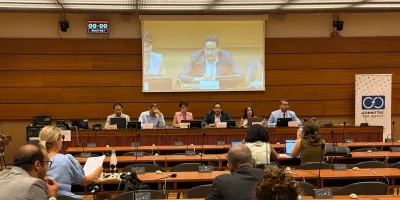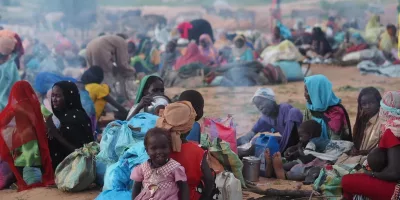News briefing
Translated and edited by: Committee for Justice
Geneva: 14 November 2021
The UN Special Rapporteur on extreme poverty and human rights, Olivier De Schutter, has said that the Lebanese authorities’ destruction of the national currency, the political deadlock, and reinforcement of long-standing inequalities has plunged Lebanon into extreme poverty.
In a statement published by the Media Center of the Human Rights Council in Geneva, de Schutter said at the conclusion of his 12-day visit to the country: “Lebanon is not a failed State yet, but it is a failing State, with a government failing its population. It was once considered a beacon of inspiration in the region, with high levels of human development and capacity.”
“The destruction of the Lebanese lira has devastated lives and impoverished millions. The government’s inaction in the face of this unprecedented crisis has inflicted great misery on the population, especially on children, women, stateless and undocumented individuals, and people with disabilities who were already marginalized,” continued the UN expert.
De Schutter explained that the “manufactured crisis” has destroyed the lives of the population, condemning many to poverty that will be passed down from generation to generation, saying: “While the population is trying to survive day-to-day, the Government wastes precious time evading accountability and scapegoating refugees from the comfort of their offices.”
The UN rapporteur indicated that it is worrying how the political leadership appears unwilling to clarify the relationship between tax reform and poverty alleviation and underestimates the benefits that social protection systems can achieve in rebuilding the economy, especially in times of crisis.
De Schutter said that the reliance on international aid is not sustainable and in fact weakens state institutions, adding: “During my visit, I met with people who depend on international and non-governmental organizations for their daily survival, young children whose sole dream is to leave the country as soon as possible, women who withstand domestic abuse and cut their meals to protect their children, and young adults with no life prospects.”
“These people need credible solutions today, and I am deeply concerned that the Government is not taking their plight seriously,” he added.
The UN rapporteur explains: “It is well-known that Lebanon has high levels of debt but, on their own, high debt-to-GDP ratios do not lead to a debt crisis, and the question is, what have political leaders spent resources on for decades?”, noting that Lebanon ignored the need to social policies, from robust social welfare programs and public service infrastructures, and instead focused on unproductive sectors such as banks, continually multiplying public debt, and dedicating those resources to its service.
De Schutter stressed that Lebanon lacks a comprehensive social welfare system that would have mitigated the effects of the crisis that struck most of the population without protection, stressing that the government must give priority to establishing a minimum level of comprehensive social protection, including unemployment insurance, child benefits, old-age and disability pensions, sickness and maternity or paternity benefits, all of which would have protected workers during the COVID-19 lockdown.
“The donor community is running out of patience with the Lebanese government. After losing US$240 million to the scam of arbitrary and unfavourable exchange rates, they need to see that the government is serious about transparency and accountability, and a rights-based approach can guide the government’s efforts in this process,” said the expert.
The Special Rapporteur had visited Beirut, Tripoli, the Akkar region and the Bekaa Valley between 1 and 12 November, and met with Prime Minister Mikati, eight government ministers, the Governor of the Central Bank, and the Speaker of Parliament, after speaking with people suffering from poverty, civil society organizations, and society Donors, UN agencies, and municipalities.






